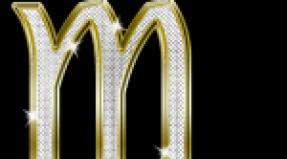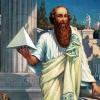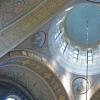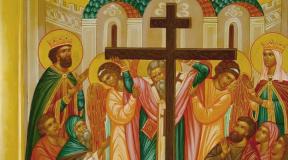Moses where he ruled. Sacred biblical story of the old testament
In Egypt, the Jews lived well at first. But the new pharaohs who came to the Egyptian throne began to forget Joseph and his merits. They feared that the Jewish people would multiply; feared that the Jews would become stronger than the Egyptians and rebel against them. The pharaohs began to exhaust them with hard work. Finally, one of the pharaohs ordered the killing of all boys born to Jews.
While the Jews were still doing well, they began to forget God and began to adopt pagan customs from the Egyptians. Now, when troubles began, they remembered about God and turned to Him with a prayer for salvation. The merciful Lord heard them and sent them deliverance through the prophet and leader Moses.
Moses was born into a family descended from the tribe of Levi. The mother hid her son from the Egyptians for three months. But when it was no longer possible to hide it, she took a reed basket, tarred it, put the baby in it, and set the basket in the reeds by the river bank. And the baby's sister Mariam began to observe from afar what would happen next.
Pharaoh's daughter with her maids came to bathe at this place. Noticing the basket, she ordered to get it. When she saw the crying baby, she felt sorry for him. She said, "This is from Jewish children." Mariam approached her and asked: "Should I look for him among the Jewish women for a nurse?" The princess said: "Yes, go and look." Mariam went and brought her mother. The princess told her: “Take this baby and feed him to me; I'll give you your payment. " She agreed with great joy.
When the baby grew up, the mother brought him to the princess. The princess took him to her, and he was with her instead of her son. She gave him the name Moses, which means "taken out of the water."
Moses grew up in the royal court and was taught all the wisdom of the Egyptian. But he knew he was a Jew and he loved his people. One day Moses saw that an Egyptian was beating a Jew. He interceded for the Jew and killed the Egyptian. Another time, Moses saw a Jew beating another Jew. He wanted to stop him, but he boldly replied: "Do you want to kill me, as you killed the Egyptian?" Moses was frightened when he saw that his act had become known. Then Moses fled from Egypt, from Pharaoh to another country, to Arabia, to the land of Midian. He settled with the priest Jethro, married his daughter Zipporah, and tended his flocks.
Once Moses went with the flocks far away and was at Mount Horeb. There he saw a thorn bush, which was engulfed in flames, burned and did not burn. Moses decided to come closer and see why the bush did not burn. Then he heard a voice from the middle of the bush: “Moses! Moses! Don't come here; take off your shoes from your feet, for the place where you stand is holy ground. I am the God of Abraham, Isaac and Jacob. " Moses covered his face because he was afraid to look at God.
The Lord said to him: “I saw the suffering of my people in Egypt and heard his cry, and I go to rescue him from the hand of the Egyptians and bring him into the land of Canaan. Go to Pharaoh and bring My people out of Egypt. " At the same time, God gave Moses the power to perform miracles. And since Moses was tongue-tied, that is, he stuttered, the Lord gave him his brother Aaron to help him, who would speak for him.
The bush that did not burn in the fire, which Moses saw when God appeared to him, was called the "burning bush". He portrayed the state of the chosen Jewish people, oppressed and not perishing. He was also a prototype of the Mother of God, Who was not scorched by the fire of the Divinity of the Son of God when He descended through Her from Heaven to earth, being born of Her.
NOTE: see Ref. 1; 2; 3; 4, 1-28.
Name: Moses
Date of Birth: 1393 BC
Date of death: 1273 BC
Age: 120 years
Place of Birth: Egypt
Place of death: Nebo, Moab, Jordan
Activity: jewish prophet, founder of Judaism
Family status: was married
Moses - biography
Moses, Moshe, Musa ... Three great religions consider him their prophet, and one of them - Judaism - he founded. However, scientists still argue whether this person really existed, when he lived and what exactly he did.
Four of the five books of the biblical Pentateuch (Torah) are dedicated to the Acts of Moses. The first of them - Shmot, or "Names" - in the Christian tradition is called "Exodus" in reminder of the main event associated with the name of the prophet. The departure of the Jews from Egypt, their long journey through the wilderness and the acquisition of the “promised” land in Palestine promised by God would have been impossible without Moses. However, he himself never set foot on this land - he died on its border, fulfilling his own prophecy: not a single person born in slavery will see a new homeland.
The Jews were slaves in Egypt, where they once came in search of better life... The wise man Joseph, who became Pharaoh's adviser, brought his father Jacob (aka Israel) and all his relatives to the banks of the Nile, who quickly settled there, multiplied and became rich. This did not please the next pharaoh, who gathered all the Jews in the Goshen border region, forcing them to build fortresses and food depots for future wars. The life of the Jews "became bitter from the hard work on clay and bricks," but they survived, gave birth to children ...
Then the evil Pharaoh ordered to kill all the sons of the tribe of Israel. One of these doomed people was the newborn son of Amram and Jochebed, whom loving parents decided to save. According to legend, they put him in a wicker basket and let him into the Nile, but the river teeming with crocodiles was not very suitable for saving a child. As well as for bathing the daughter of the pharaoh, who, as if by chance, found the baby, took pity on him and took him up. It seems that the relatives of the baby deliberately threw him to the princess, having found out in advance that she is childless and dreams of a son.
It was as if Joha Veda, who happened to be nearby, immediately asked for the boy's wet nurse so as not to part with him. The princess (in Haggadah, a collection of legends on biblical themes, her name is Batya) gave the foundling the name Moshe, in Hebrew "saved from the water." But Pharaoh's daughter could not know the language of the Asian barbarians. Rather, she named him Mose, "son." This word was included in the names of the most distinguished Egyptians; for example, Thutmose means the son of Thoth, Ramses means Ra.
Perhaps Moses also bore this name, which means that he could be the legitimate son of a nobleman or even Pharaoh himself. For example, Ehna-ton, who established the cult of the single god Aton - this could be reflected in the monotheism of the Jews. Sigmund Freud, in his book This Man is Moses, suggested that the Jewish prophet was Akhenaten's associate, a priest named Osarsif. After the death of the king, he and his supporters briefly seized power in Egypt, but then he was expelled into the desert and there founded a new religion.
It seems that Moses really owned the wisdom of the Egyptian priests, which his naive tribesmen considered witchcraft, and could well have been a noble courtier who fled the country after another change of power. But not at the time of Akhenaten: then, in the middle of the XIV century BC, the Egyptians owned Palestine and would not have allowed Jewish fugitives there.
Jewish tradition dates the Exodus to the middle of the 16th century BC. e., when the Asians-Hyksos, who had previously owned it, were expelled from Egypt, some of whom could take possession of the Promised Land. But then, according to archaeologists, nothing noticeable happened in Palestine, which was still called Canaan. Another thing is the middle of the XIII century BC, when the local city-states fell one after another under the blows of newcomers from the south.
The burnt ruins and bones speak of the cruelty of the invaders, which could only be the descendants of Israel. At that time, Egypt dramatically weakened after the death of the great Ramses II, who oppressed the conquered tribes (and forced them to build fortresses near the borders). Now some of these tribes revolted, while others, like the Jews, were in a hurry to leave the country, which Moses took advantage of.
Since childhood, he was a troublemaker who did not want to follow the rules. According to legend, once sitting on the lap of the pharaoh, he tore off the crown from him and put it on himself. For such a sacrilege, the priests demanded his execution, but Batya's adoptive mother said that madness had come over him. As proof, she ordered to give him a toy and a hot coal to choose from, and the boy grabbed the coal, and then also put it in his mouth. Burned, he remained tongue-tied: his unintelligible, truly prophetic words were understood only by brother Aaron and sister Miriam, who interpreted them to others.
Moses grew up in the circle of noble Egyptians and only occasionally visited his relatives - outcast slaves. Once at a construction site, he saw a big overseer beating an emaciated Jew, and in anger he killed the offender, and buried the body in the sand. Someone saw this and reported to the authorities; the killer had to flee to Sinai, to the Midianite tribe. There he met girls who were kept away from the well by a crowd of shepherds. Moses again stood up for the weak, and one of the girls, Zipporah, or Zipporah ("bird"), fell in love with him. Soon she became his wife and gave birth to sons Gershom and Eleazar, who subsequently did not show themselves in anything. Zipporah also disappeared somewhere, and later Moses married an Ethiopian, again breaking the accepted rules.
The Bible says that he lived with the Midianites for 40 years - "and his whole life was 120 years." Like everyone else, the former nobleman grazed cattle and once wandered with the sheep to Mount Horeb (Sinai), where he saw an unusual vision. From a burning, but not burning bush - the "burning bush" - God himself spoke to him, who for the first time named his true name... “I am Jehovah,” he said, that in Hebrew it sounds like Yahweh (later this name was forbidden to pronounce, replacing the epithets - Sabaoth, Adonai, Elohim and so on). After that, he demanded that Moses go to Pharaoh and got him to release the Jews from the "house of slavery."
The Prophet refused three times, saying that he was deprived of the gift of speech ("I am not a man of speech"), that neither the people nor the Pharaoh would listen to him, but the Almighty insisted. For persuasiveness, he gave Moses the power to perform miracles, and appointed his brother Aaron as his helpers and translators. Together they left the Midianites (it seems that the prophet's relationship with the new relatives did not work out) and went to Egypt. Somehow, reaching the king, Moses voiced the demand, known to most in Louis Armstrong's interpretation: "Let my people go!" - "Let my people go!"
When Pharaoh refused, the prophet threatened to send ten "Egyptian executions" to his subjects. Alternately pestered by invasions of toads, midges, "dog flies", pestilence of cattle, fiery hail, invasion of locusts, the king at first persisted, then promised to let the Jews go, but every time he took the promise back out of harm. Finally the country was covered with darkness, so thick that it could be touched with hands - "all the children of Israel had light in their dwellings."
The terrified Pharaoh agreed to free the Jews, but ordered them to leave all property and livestock in Egypt. Then Moses announced the last, the most terrible execution: "Every firstborn in the land of Egypt, from the firstborn of Pharaoh to the firstborn of a slave girl, will die." He ordered the Jews to anoint the doorposts with the blood of the sacrificial lamb, and the angel of death passed by their houses. Since then, the holiday of Easter, or Pesach, has been celebrated, which means "passing", liberation from fear and oppression.
After that, Pharaoh nevertheless released the Jews with all their property - and along with the gold and silver they had borrowed from the Egyptians on the advice of Moses. In a hurry, the fugitives did not have time to ferment the bread and baked unleavened cakes, or matzo, - since then an indispensable part of the Jewish Passover. Allegedly, 600 thousand adult men alone set out on the road, but in fact there were a hundred times less fugitives. As they moved eastward, Pharaoh regretted the loss of so many slaves and followed them with his entire army, including 600 chariots.
Seeing from afar the dust raised by them, the Jews raised a murmur: "It is better for us to be in slavery to the Egyptians than to die in the desert!" But Moses remained calm: after his prayer, the waves of the sea parted and allowed the Jews to pass to the other side, and the Egyptians who rushed in pursuit drowned every one, together with Pharaoh. Previously, it was believed that the unfortunate king was the son of Ramses II Merneptah, whose burial could not be found for a long time. Then And it was found, but perhaps Pharaoh did not die in the waves at all. By the way, the Bible does not claim that a miracle happened on the Red Sea: it may have happened in one of the marshes of the Isthmus of Suez, which the Jews crossed along a secret path, and the heavy Egyptian cavalry got stuck.
Be that as it may, Moses and his people found themselves free - in a ruthless desert, threatening them with death from hunger and thirst. The water in the few springs was bitter, but the prophet ordered the bark of a tree to be thrown into it - again priestly wisdom? - and she became drinkable. But there was no food, and the Jews again began to grumble about the times of slavery, "when we sat by the cauldrons of meat, when we ate our bread." Moses prayed again, and in the morning the desert was covered with white balls of "manna from heaven", from which it was possible to bake bread.
One German scholar suggested that it comes about sweet drops of juice, solidifying on the branches of a desert tamarisk, but it is unlikely that such a small amount would be enough for food - and after all, the Jews ate manna for all forty years of the journey. But it is even more surprising that they spent these forty years on a journey that takes at most several months. True, they did not go directly to Palestine, since the warlike people of the Philistines settled on the coast, but through the entire Sinai, then beyond the Jordan and from there, from the east, to the Promised Land, but this does not explain the duration of the journey.
Either the biblical figures are greatly exaggerated, or Moses deliberately sought to unite his people in wanderings and remove from the scene a generation for which a bowl of meat was more precious than freedom. It soon turned out that the desert was not so deserted - the robbers-ki-Amalekites attacked the Jews. During the battle, Moses prayed to God for victory; when he lost his strength, the enemies began to win, and the family had to keep the old man. As a result, the Israelites won, and Moses ordered to "blot out the memory of the Amalekites from the heavenly places."
And so it happened: in every settlement they met, the Jews betrayed all men over ten years old to the sword, and they took women as concubines (then, when the Lord forbade this, they were also killed). In the third month after leaving Egypt, they came to Mount Sinai, where Moses again saw God - this time in a cloud of smoke. The Lord ordered the Jews to camp at the mountain, but not to climb there on pain of death. The Prophet alone ascended the summit and stayed there for forty days, during which time he received detailed instructions on how to make Israel "a kingdom of priests and a people of saints." The essence of what has been said, the ten biblical commandments, the Almighty wrote with his own hand on two stone tablets-tablets, at the same time inventing the alphabet.
Taking the tablets with him, Moses went downstairs. It turned out that in his absence, the "people of saints" immediately fell into heresy. Having decided that the prophet had vanished without a trace, the Jews forced Aaron to cast a golden calf for them and began to worship him as a god - and the second commandment was: "Do not make yourself an idol and no image." In anger, Moses broke both the calf and the tablets brought, and then ordered those who remained faithful to him to indiscriminately kill their friends and relatives.
Having exterminated three thousand people, he calmed down and again went to the mountain to ask for forgiveness from the Lord. After another forty days he returned, and rays of grace emanated from his face - in order not to blind those oncoming, he had to cover his head with a veil. The medieval interpreters of the Bible translated the word "karnaim" (rays) as "horns", so the famous statue of Michelangelo depicts the prophet horned.
Moses brought with him new tablets to replace the broken ones and placed them in safekeeping in the Ark of the Covenant - a wooden box decorated with golden statues of cherubim. The ark, in turn, was placed in the tabernacle, a large tent, which was guarded day and night by members of the new order of priests (cohen). They were supposed to interpret God's commandmentsso that dull Israelites do not pervert them. Moses took from the elders all 12 tribes, or clans, their rods, put them together and announced that the head of the priests would be the one whose rod would be covered with flowers in the morning.
It is not surprising that the rod of his brother Aaron from the tribe of Levi blossomed, but only Aaron himself and his descendants became cohens. Their disgruntled relatives, led by Korah, raised a riot, accusing Moses of deceit: "You did not bring us to a land flowing with milk and honey, and you still want to rule over us!" The insulted prophet prayed for the punishment of the blasphemers, and they sank into the ground together with their families and all their property. As a result, the Levites came to terms with the role of cohen's helpers in serving God.
This incident did not strengthen Moses' popularity - he was revered and feared, but not loved. He was too adamant, harsh (unlike the good Aaron), he demanded too much from his people. Yes, and he was tired of the stubbornness and ingratitude of the Jews, in his hearts calling them "a hard-footed people." True, when God - who also seemed to have lost patience - threatened to destroy the "chosen people", the prophet repeatedly begged for forgiveness for him. Once again this happened on the way to Canaan, when the Jews again began to murmur and beg to return to Egypt.
The Almighty sent poisonous snakes on them, but ordered Moses to erect a brazen serpent on a pillar, so that everyone who looks at him with faith would be healed of the poison. The prophet himself was punished for the sins of the people: this happened when he once again extracted water from the rock and not only ordered it to pour, as God had commanded, but struck the rock with a rod. For this minor offense, he was punished by the prohibition to set foot on the Promised Land: "I will let you see it with your eyes, but you will not enter it."
Approaching Jordan, the Jews sent scouts to Canaan, who reported disappointing news: the country is rich, but well fortified, and its warlike inhabitants are not at all going to submit to strangers.
Then Moses, who was already 120 years old, wrote the last book of the Torah, Deuteronomy, or Dvarim, where he gave the people new laws for a future settled life. After that, he climbed Mount Nebo in the country of Moab, present-day Jordan, from where the flowering Jordan Valley was clearly visible. Looking around the vastness of the country, which was to be conquered by his pupil Joshua, the prophet sank to the ground and died. The Jews mourned him for thirty days, but for some reason they did not save the grave: "No one knows the place of his burial even to this day."
It seems that after his death Moses-Moshe turned out to be as uncomfortable for someone as he was during his lifetime.
Moses is the greatest Old Testament prophet, the founder of Judaism, who brought the Jews out of Egypt, where they were in slavery, took the Ten Commandments from God on Mount Sinai and united the Israelite tribes into a single people.
In Christianity, Moses is considered one of the most important types of Christ: as through Moses the Old Testament was revealed to the world, so through Christ - the New Testament.
The name "Moses" (in Hebrew - Moshé), presumably of Egyptian origin, means "child." According to other indications - "taken out or saved from the water" (by this name he was named by the Egyptian princess, who found him on the river bank).
Four books of the Pentateuch (Exodus, Leviticus, Numbers, Deuteronomy) are devoted to his life and work, making up the epic of the Exodus of the Jews from Egypt.
The birth of Moses
According to the biblical account, Moses was born in Egypt to a Jewish family during the time when the Jews were enslaved by the Egyptians, around 1570 BC (according to other estimates, around 1250 BC). Moses' parents belonged to the tribe of Levíi 1 \u200b\u200b(Ex. 2: 1). His older sister was Miriam, and his older brother was Aaron (the first of the Jewish high priests, the founder of the priestly caste).
1 Levi - the third son of Jacob (Israel) from his wife Leah (Gen. 29:34). The descendants of the tribe of Levíi are the Levites, who were responsible for the ministry. Since of all the tribes of Israel, the Levites were the only tribe without land, they were dependent on their brethren.
As you know, the Israelites moved to Egypt during the life of Jacob-Israel himself 2 (XVII century BC), fleeing hunger. They lived in the eastern Egyptian region of Goshen, bordering the Sinai Peninsula and irrigated by a tributary of the Nile River. Here they had extensive pastures for their herds and could freely roam the country.
2 Jacob,or Jacob (Israel) - the third of the biblical patriarchs, the youngest of the twin sons of patriarch Isaac and Rebekah. 12 tribes of the people of Israel originated from his sons. In rabbinic literature, Jacob is seen as a symbol of the Jewish people.
Over time, the Israelites multiplied more and more, and the more they multiplied, the more hostile the Egyptians were towards them. In the end, there were so many Jews that it began to instill fear in the new pharaoh. He told his people: "The Israeli tribe is multiplying and can become stronger than us. If we have a war with another state, the Israelis can unite with our enemies."So that the Israelite tribe did not grow stronger, it was decided to turn it into slavery. Pharaohs and their officials began to oppress the Israelites as aliens, and then began to treat them like a conquered tribe, like masters with slaves. The Egyptians began to force the Israelites to do the most difficult work for the benefit of the state: they were forced to dig the earth, build palaces and monuments for the kings, prepare clay and bricks for these buildings. Special guards were appointed to strictly monitor the execution of all these forced labor.

But no matter how oppressed the Israelites, they still continued to multiply. Then Pharaoh gave the order that all newborn Israeli boys should be drowned in the river, and only girls should be kept alive. This order was carried out with merciless severity. The Israeli people were threatened with total annihilation.
In this time of trouble, a son was born to Amram and Jochebed from the tribe of Levi. He was so beautiful that light came from him. The father of the holy prophet Amram had an apparition that spoke of the great mission of this baby and of God's favor to him. Moses' mother Jochebed managed to hide the baby in her home for three months. However, no longer able to hide it, she left the baby in a tarred basket of reeds in the thickets on the banks of the Nile.

Moses, lowered by his mother into the waters of the Nile. A.V. Tyranov. 1839-42
At this time, Pharaoh's daughter went to the river to swim, accompanied by her maids. Seeing a basket in the reeds, she ordered to open it. There was a tiny boy in the basket crying. Pharaoh's daughter said, "This must be from the Jewish children." She took pity on the crying baby and, on the advice of Moses' sister Miriam, who came up to her, who was observing what was happening from a distance, agreed to call the Israeli nurse. Miriam brought her mother Jochebed. Thus, Moses was given to his mother, who nursed him. When the boy grew up, he was brought to the daughter of Pharaoh, and she raised him as her son (Ex. 2:10). Pharaoh's daughter gave him the name Moses, which means “taken out of the water”.
.jpg)
There are suggestions that this good princess was Hatshepsut, the daughter of Totmes I, later the famous and only woman-pharaoh in the history of Egypt.
Childhood and youth of Moses. Escape to the desert.
Moses spent the first 40 years of his life in Egypt, raised in a palace as the son of Pharaoh's daughter. Here he received an excellent education and was initiated “into all the Egyptian wisdom,” that is, into all the secrets of the religious and political outlook of Egypt. Tradition tells that he served as the commander of the Egyptian army and helped the pharaoh to defeat the Ethiopians who attacked him.
Although Moses grew up freely, he still never forgot his Jewish roots. One day he wanted to see how his fellow tribesmen lived. Seeing an Egyptian overseer beating one of the Israelite slaves, Moses stood up for the defenseless and, in a fit of rage, accidentally killed the overseer. Pharaoh found out about this and wanted to punish Moses. The only way to escape was escape. And Moses fled from Egypt to the Sinai Desert, which is near the Red Sea, between Egypt and Canaan. He settled in the land of Midiam (Ex. 2:15), located on the Sinai Peninsula, with the priest Jethro (another name is Raguel), where he became a shepherd. Moses soon married Jethro's daughter, Zipporah, and became a member of this peaceful shepherd's family. So another 40 years passed.
Moses calling
One day Moses was tending the flock and went far into the wilderness. He approached Mount Horeb (Sinai), and here a wonderful vision appeared to him. He saw a dense thorn bush that was engulfed in a bright flame and burned, but still did not burn.
.jpg)
The thorn bush or "Burning Bush" is a prototype of God-manhood and the Mother of God and symbolizes the contact of God with a created being
God said he chose Moses to save the Jewish people from slavery in Egypt. Moses had to go to Pharaoh and demand that he release the Jews. As a sign that the time has come for a new, more complete Revelation, He announces His Name to Moses: "I am who I am"(Ex. 3:14) . He sends Moses to demand on behalf of the God of Israel to release the people from the "house of slavery." But Moses realizes his weakness: he is not ready for a heroic deed, is deprived of the gift of speech, he is sure that neither Pharaoh nor the people will believe him. Only after persistently repeating the call and signs does he agree. God said that Moses in Egypt has a brother Aaron who, if necessary, will speak in his place, and God himself will teach both of them what to do. To convince unbelievers, God gives Moses the ability to perform miracles. Immediately, by His order, Moses threw his rod (shepherd's stick) to the ground - and suddenly this rod turned into a snake. Moses caught the snake by the tail - and again there was a stick in his hand. Another miracle: when Moses put his hand in his bosom and took it out, it turned white with leprosy like snow, when he put his hand in his bosom again and took it out - she became healthy. “If they don’t believe this miracle, - said the Lord, - then take water from the river and pour it on dry land, and the water will become blood on dry land. "
Moses and Aaron go to Pharaoh
Obeying God, Moses set out on the road. On the way, he met his brother Aaron, whom God ordered to go out into the wilderness to meet Moses, and together they came to Egypt. Moses was already 80 years old, no one remembered him. The daughter of the former Pharaoh, the adoptive mother of Moses, also died long ago.
The first thing Moses and Aaron came to the people of Israel. Aaron told his fellow tribesmen that God would lead the Jews out of slavery and give them a country flowing with milk and honey. However, they did not believe him immediately. They were afraid of Pharaoh's revenge, they were afraid of the way through the waterless desert. Moses performed several miracles, and the Israelites believed in him and that the hour of liberation from slavery had come. Nevertheless, a murmur against the prophet, which began even before the exodus, then broke out several times. Like Adam, who was free to submit to the higher Will or reject it, the newly created people of God experienced temptations and falls.

After that, Moses and Aaron appeared to Pharaoh and announced to him the will of the God of Israel, so that he would send the Jews into the wilderness to serve this God: "Thus says the Lord, the God of Israel: Let My people go, so that they may celebrate Me a feast in the wilderness."But Pharaoh answered angrily: “Who is the Lord for me to listen to? I do not know the Lord and I will not let the Israelites go " (Ex. 5: 1-2)

Then Moses announced to Pharaoh that if he did not let the Israelites go, then God would send various "executions" (misfortunes, calamities) to Egypt. The king did not obey - and the threats of the messenger of God came true.
Ten Plagues and the Establishment of Easter

Pharaoh's refusal to fulfill God's command entails 10 "executions of the Egyptians" , a series of terrible natural disasters:
However, the executions only further exasperate the Pharaoh.
Then the angry Moses came to Pharaoh for the last time and warned: “Thus says the Lord: at midnight I will pass through the middle of Egypt. And every firstborn in the land of Egypt will die, from the firstborn of Pharaoh ... to the firstborn of the slave girl ... and all the firstborn of cattle. " This was the last most fierce 10th execution (Ex. 11: 1-10 - Ex. 12: 1-36).

Then Moses warned the Jews to slaughter a one-year-old lamb in each family and anoint the doorposts and the crossbar of the door with its blood: by this blood God will distinguish the dwellings of the Jews and will not touch them. The lamb was to be baked over a fire and eaten with unleavened bread and bitter herbs. Jews must be ready to set off immediately.

Egypt suffered a terrible calamity during the night. “And Pharaoh got up by night, he and all his servants, and all Egypt; and there was a great cry in the land of Egypt; for there was no home where there was no dead man. "

The shocked Pharaoh immediately summoned Moses and Aaron to him and ordered them, together with all their people, to go into the wilderness and perform a service so that God would take pity on the Egyptians.
Since then, the Jews every year on the 14th day of the month of Nisan (the day falling on the full moon of the vernal equinox) perform easter holiday ... The word “passover” means “to pass by,” because the Angel who defeated the firstborn passed by the Jewish houses.
From now on, Easter will mark the liberation of the People of God and their unity in the sacred meal - the prototype of the Eucharistic meal.
Exodus. Crossing the Red Sea.
That same night, the entire nation of Israel left Egypt for good. The Bible indicates the number of those who left "600 thousand Jews" (not counting women, children and livestock). The Jews did not leave empty-handed: before fleeing, Moses ordered them to ask their Egyptian neighbors for gold and silver things, as well as rich clothes. They also took with them the mummy of Joseph, which Moses had been looking for for three days, while his fellow tribesmen collected property from the Egyptians. God himself led them, being in a pillar of cloud during the day, and in a pillar of fire at night, so that the fugitives walked day and night until they came to the seashore.
In the meantime, Pharaoh realized that the Jews had deceived him, and rushed after them in pursuit. Six hundred war chariots and selected Egyptian cavalry quickly overtook the fugitives. There seemed to be no escape. Jews - men, women, children, old people - crowded on the seashore, preparing for their inevitable death. Only Moses was calm. At the command of God, he stretched out his hand to the sea, struck the water with his rod, and the sea parted, making way. The Israelites walked along the seabed, and the waters of the sea stood like a wall to their right and left.


Seeing this, the Egyptians chased the Jews along the bottom of the sea. Pharaoh's chariots were already in the middle of the sea, when the bottom suddenly became so viscous that they could hardly move. Meanwhile, the Israelis made their way to the opposite bank. The Egyptian soldiers realized that things were bad, and decided to turn back, but it was too late: Moses again stretched out his hand to the sea, and it closed over the army of Pharaoh ...

The crossing of the Red (now Red) Sea, accomplished in the face of imminent mortal danger, becomes the culmination of a saving miracle. The waters removed the saved from the "house of slavery." Therefore, the transition became a prototype of the sacrament of baptism. The new passage through the water is also the path to freedom, but to freedom in Christ. On the seashore, Moses and all the people, including his sister Miriam, solemnly sang a song of thanksgiving to God. “I sing to the Lord, for He is highly exalted; he threw his horse and rider into the sea ... "This solemn song of the Israelites to the Lord is the basis of the first of the nine sacred songs that make up the canon of songs sung daily by the Orthodox Church at divine services.
According to biblical tradition, the Israelites lived in Egypt for 430 years. And the Exodus of the Jews from Egypt took place, according to the calculations of Egyptologists, about 1250 BC. However, according to the traditional point of view, the Exodus took place in the 15th century. BC e., 480 years (~ 5 centuries) before the construction of the Temple of Solomon in Jerusalem (1 Kings 6: 1). There are a significant number of alternative theories of the chronology of the Exodus, in varying degrees of agreement with both religious and modern archaeological points of view.
Miracles of Moses

The road to the Promised Land ran through the harsh and vast Arabian desert. At first they walked for 3 days in the desert of Sur and did not find water, except for the bitter one (Merrah) (Ex. 15: 22-26), but God delighted this water, commanding Moses to throw a piece of some special tree into the water.
Soon, reaching the Sin Desert, the people began to grumble with hunger, remembering Egypt, when they "sat by the cauldrons of meat and ate their bread!" And God heard them and sent them from heaven manna from heaven (Ex. 16).
One morning, when they woke up, they saw that the whole desert was covered with something white, like frost. They began to examine: the white bloom turned out to be small grains, like hail or grass seeds. In response to the surprised exclamations, Moses said: "This is the bread that the Lord has given you to eat." Adults and children rushed to rake the manna and bake the bread. Since then, every morning for 40 years they found manna from heaven and fed on it.

Manna from heaven
The collection of manna took place in the morning, since by noon it melted in the sun. "Manna was like a coriander seed, a kind like bdellium" (Num. 11: 7). According to Talmudic literature, eating manna, young men felt the taste of bread, old people - the taste of honey, children - the taste of butter.
In Rephidim, Moses, at the command of God, drew water from the rock of Mount Horeb, striking it with his rod.

Here the Jews were attacked by a wild tribe of Amalekites, but they were defeated during the prayer of Moses, who during the battle prayed on the mountain, raising his hands to God (Ex. 17).
Sinai Covenant and 10 Commandments
In the 3rd month after leaving Egypt, the Israelites approached Mount Sinai and camped against the mountain. First, Moses ascended the mountain, and God warned him that he would appear before the people on the third day.

And then the day came. The apparition on Sinai was accompanied by terrible phenomena: cloud, smoke, lightning, thunder, flame, earthquake, trumpet. This fellowship lasted 40 days, and God gave Moses two tablets - stone tables on which the Law was written.

1. I am the Lord your God, who brought you out of the land of Egypt, out of the house of bondage; may you have no other gods before me.
2. Do not make yourself an idol and no image of what is in the sky above, and what is on the earth below, and what is in the water below the earth; do not worship them or serve them, for I am the Lord your God. God is a jealous person, punishing children for the guilt of fathers up to the third and fourth generation, who hate me, and showing mercy up to a thousand generations to those who love Me and keep My commandments.
3. Do not take the name of the Lord your God in vain, for the Lord will not leave without punishment the one who utters His name in vain.
4. Remember the sabbath day to keep it holy; work six days and do (in them) all your deeds, and the seventh day is Saturday to the Lord your God: do not do any work on that day, neither you, nor your son, nor your daughter, nor your servant, nor your maidservant, nor (will yours, nor your donkey, nor any) your cattle, nor the stranger that is in your gates; for in six days the Lord made heaven and earth, the sea and all that is in them, and rested on the seventh day; therefore the Lord blessed the Sabbath day and sanctified it.
5. Honor your father and your mother, (so that you feel good and) that your days may be prolonged on the land which the Lord your God gives you.
6. Don't kill.
7. Don't commit adultery.
8. Don't steal.
9. Do not bear false testimony against your neighbor.
10. Do not covet your neighbor's house; do not covet your neighbor's wife, (nor his field), nor his servant, nor his maidservant, nor his ox, nor his donkey, (nor any of his livestock) anything that is with your neighbor.
The law that was given to ancient Israel by God had several purposes. First, he asserted public order and justice. Secondly, he singled out the Jewish people as a special religious community professing monotheism. Thirdly, he had to make an internal change in a person, morally improve a person, bring a person closer to God through instilling in a person love for God. Finally the law Old Testament prepared mankind to accept the Christian faith in the future.
The Decalogue (Ten Commandments) formed the basis of the moral code of all cultural humanity.
In addition to the ten commandments, God dictated laws to Moses, which spoke about how the people of Israel should live. So the Sons of Israel became a people - jews .
The wrath of Moses. The establishment of the tabernacle of the covenant.
Moses ascended Mount Sinai twice, staying there for 40 days. During his first absence, the people sinned terribly. The wait seemed to them too long and they demanded from Aaron to make them a god who brought them out of Egypt. Frightened by their wildness, he gathered gold earrings and made a golden calf, before which the Jews began to serve and have fun.

Coming down from the mountain, Moses broke the Tablets in anger and destroyed the calf.

Moses breaks the tablets of the Law
Moses severely punished the people for apostasy, killing about 3 thousand people, but asked God not to punish them. God had mercy and showed him His glory, showing him a cleft in which he could see God from behind, because His faces cannot be seen by a man.
After that, again for 40 days, he returned to the mountain and prayed to God for the forgiveness of the people. Here, on the mountain, he received instructions about the construction of the Tabernacle, the laws of worship and the establishment of the priesthood.It is believed that in the book of Exodus the commandments are listed, on the first broken tablets, and in Deuteronomy - what was inscribed the second time. From there he returned with the shining light of God's face and was forced to hide his face under a veil so that the people would not go blind.
Six months later, the Tabernacle was built and consecrated - a large, richly decorated tent. Inside the tabernacle stood the Ark of the Covenant - a wooden chest covered with gold with images of cherubim on top. In the ark lay the tablets of the covenant brought by Moses, a golden stamn with manna, and a flourishing rod of Aaron.

Tabernacle
To prevent disputes about who should have the right of the priesthood, God commanded to take a rod from each of the twelve leaders of the tribes of Israel and put it in the tabernacle, promising that the rod would blossom with His chosen one. The next day Moses found that Aaron's rod had given flowers and brought almonds. Then Moses placed the rod of Aaron before the ark of the covenant for preservation, as a testimony to future generations of the Divine election to the priesthood of Aaron and his descendants.
Moses' brother, Aaron, was ordained high priest, and other members of the tribe of Levi were ordained priests and "Levites" (in our opinion, deacons). From this time on, the Jews began to perform regular services and animal sacrifices.
End of the journey. Death of Moses.
For another 40 years Moses led his people to the promised land - Canaan. At the end of the wandering, the people again began to feel faint-hearted and grumble. As punishment, God sent poisonous snakes, and when they repented, commanded Moses to erect a brass image of a serpent on a pole, so that everyone who looked at him with faith would remain unharmed. A serpent ascended in the wilderness, as St. Gregory of Nyssa, - there is a sign of the sacrament of the cross.

Despite great difficulties, the prophet Moses remained a faithful servant of the Lord God until the end of his life. He led, taught and instructed his people. He arranged their future, but did not enter the Promised Land for the lack of faith shown by him and his brother Aaron at the waters of Meribah in Kadesh. Moses struck the rock twice with his rod, and water flowed from the stone, although once was enough - and God, in anger, announced that neither he nor his brother Aaron would enter the Promised Land.
By nature, Moses was impatient and prone to anger, but through divine education he became so humble that he became "the meekest of all people on earth." In all his deeds and thoughts, he was guided by faith in the Most High. In a sense, the fate of Moses is similar to the fate of the Old Testament itself, which, through the desert of paganism, brought the people of Israel to the New Testament and stood on its threshold. Moses died at the end of forty years of wanderings on the top of Mount Nebo, from which he could see the promised land - Palestine from afar. God told him: "This is the land about which I swore to Abraham, Isaac and Jacob ... I gave you to see it with your eyes, but you will not enter it."

He was 120 years old, but neither his eyesight was dulled, nor his strength was exhausted. He spent 40 years in the palace of the Egyptian pharaoh, another 40 - with flocks of sheep in the land of Midian, and the last 40 - in a wandering at the head of the Israeli people in the Sinai desert. The Israelites honored the death of Moses with 30 days of mourning. His grave was hidden by God so that the Israelites, inclined towards paganism, would not make a cult out of it.
After Moses jewish peoplespiritually renewed in the wilderness, led by his disciple, who led the Jews to the Promised Land. For forty years of wandering, not a single person survived who left Egypt with Moses, and who doubted God and bowed to the golden calf at Horeb. Thus, a truly new people was created, living by the law, given by God at Sinai.
Moses was also the first inspired writer. According to legend, he is the author of the books of the Bible - the Pentateuch as part of the Old Testament. Psalm 89 "The Prayer of Moses, the Man of God" is also attributed to Moses.
Svetlana Finogenova
Moses
[Jewish Moshe, "Bringing out", "extracting"], the greatest of the prophets, whom the Lord commanded to lead the Israelites out of Egypt and through whom the Sinai Covenant was concluded and the commandments of the Torah were granted.
I. The name "M." was named to him by his mother Jochebed (in the Synodal translation - Jochebed, Ex 2: 7-10; Ex 6:20), which, according to Jude. legend, was a prophetess and gave her son a name that indicated his future vocation. The name "M." explained in the Holy. Scripture based on the meaning of the Hebrew root word masha - "pull out", "pull out" (Ex. 2:10). Apparently, the daughter of Pharaoh M.'s mother explained the meaning of this name by the fact that the baby was found in the water. At the same time, in the ancient Egyptian language, the consonant word mose means "son", "child" (this word is an integral part of the names of the pharaohs Thutmose, Ahmose, Ramses, etc.), so such a name should have liked the daughter of the pharaoh.
II. M. is the son of Amram and Jochebed, a descendant of Kohath, the son of Levi. His older sister was Miriam (in the Synodal translation - Miriam), and his elder brother was Aaron (Ex 6: 16,18,20). M. was born in Egypt, according to Jude. traditions in 1393-1392 BC; a number of modern researchers attribute this date to approx. by 1350 or, according to another chronological. method, approx. by 1525 BC. (→ Chronology). At the time of M.'s birth, the Pharaoh's order was in effect to throw all newborn Jewish boys into the Nile (Ex. 1:22). The mother hid the baby M. for three months, but then, trying to save him, put the baby in a basket and left it in the reeds on the banks of the Nile. Pharaoh's daughter found M., and Mariami's own mother became his breadwinner. When M. grew up, his mother brought him to Pharaoh's daughter, with whom he “was instead of a son” (Ex. 2: 1-10).
III. M. stood at the origins of the birth of Israel as independent. people. Information about his life is contained primarily in the last four books of the Pentateuch of Moses. The fact that M. is a real historian. personality, in our time is already practical. nobody doubts. The consonance of his name is egyp. mose, as well as the correspondence of the data of his biography to ancient Egyptian realities, lie at the basis of the Jewish tradition, which can only be explained by a historian. facts. There is no reason to regard M. as mythological. personality: without his participation, the beginning of Jewish national history cannot be explained. His personality, the strength of his character, his role as a mediator in the announcement to the people God's will left an indelible mark on the history and religion of not only Israel, but also of all mankind. If, in spite of this, some researchers do not dare to present a coherent picture of the life and work of M., then this is due to the fact that they neglect the high value of the Pentateuch of Moses as a historian. source. The study of primary sources by such scholars is accompanied by the idea of \u200b\u200boral transmission of historians. facts and legends for many centuries after the death of M., in the absence of a fixed letter. text. However, today it is known that in the Middle East long before Moses there were deep traditions of writing and historiography, which makes it possible to oppose such theories will convince. arguments testifying in favor of writing the Pentateuch precisely in the era of Moses, and even by himself.
Years before the exodus
83Birth of Aaron (Ex 7: 7).
80 Birth of Moses (Ex 7: 7)
40 Moses' Flight to Midian (Acts 7:23, 29)
1 The Calling of Moses by God (Ex 3)
The beginning of the → Egyptian executions took place, probably, in the fifth month - the time of the flooding of the Nile.
Days, months and years after the exodus
10: I. 1 Branch of Passover. lambs from the flock to celebrate the Passover (Ex 12: 3)
14: I. 1 Passover (Ex 12: 6)
15: I. 1 The defeat of the firstborn (Ex 12:29)
Exodus from Rameses (Num 33: 3)
21: I. 1 Crossing the Sea (Ex 14)
15: II. 1 Israel in the Desert of Sin (Ex 16: 1)
1: III. 1 Israel at Mount Sinai (Ex 19: 1,2)
6: III. 1 Epiphany at Sinai. Making a Covenant and Giving the Ten Commandments (Ex 20)
1: I. 2 Establishment of the tabernacle of the covenant (Ex 40: 2,17)
1: -7: I. 2 The consecration of the priests and the altar (Lev 8: 33,35; Ex 29:37)
8: I. 2 Sacrifice of Aaron. The glory of the Lord is over the tabernacle. Destruction of Nadab and Abiud (Lev 9: 1.23; Lev 10: 1.2)
8: -19: I. 2 Sacrifices of the Chiefs (Num 7: 1,2,10)
14: I. 2 Passover (Num 9: 1-5)
1: II. 2 First reckoning of the people (Num 1: 1)
14: II. 2 "Second Passover" (Num 9:11)
20: II. 2 The children of Israel set out from the Desert of Sinai (Num 10: 11,12). The scouts' visit to Canaan "at the time of the ripening of the grapes" (Num 13:21), ie in the fourth month (→ Calendar)
10: VII. 2 Day of Atonement (Lev 16: 29-34) Stay in Kadesh, suppose. until the 3rd year (Deut 1:46; Deut 2:14) 38 years → wandering in the wilderness (II, 2)
I. 40 Israel is back in Kadesh. Death of Miriami (Num 20: 1)
1: V. 40 Death of Aaron (Num 33:38)
40 Crossing the Stream in the Valley of Zared (Deut 2:14)
1: XI. 40 Farewell speech of Moses (Deut 1: 3-5) Death of Moses in the eleventh month (Deut 34: 8; cf. Josh 4:19)
Chronological data of the Pentateuch and Jewish tradition about the life of Moses.
IV. As the adopted son of Pharaoh's daughter (Heb. 11:24), M. was “taught all the wisdom of Egypt” (Acts 7:22); he was undoubtedly well acquainted with religion. traditions and legal. norms of the Ancient East. Perhaps in Egypt, he showed his abilities as a diplomat. field (so the Jewish tradition says). But his whole brilliant future is egypt. the nobleman (and perhaps even the heir to the throne) instantly collapsed when 40-year-old M., interceding for a fellow slave, killed Egypt. overseer. Fleeing from the wrath of Pharaoh, he fled from Egypt to Midian. While living there, M. married → Zipphora, daughter of the Midian priest Raguel, or → Jethro (Ex 2: 11-22; Num 10:29). Here he lived for 40 years among the people, whose genealogy, like the genealogy of the Israelites, dates back to Abraham (Gen. 25: 1,2) and which may have retained some religions. traditions of the descendants of Abraham, having the idea of \u200b\u200bone God (see Ex. 18: 10-12). M. gave his firstborn the name Gershom [Hebrew “a stranger (I was) there”; in the Synodal translation - Gersam], thus expressing the longing for the land of the forefathers - Canaan; he named his second son Eliezer (Hebrew "God is my helper"; in the Synodal translation - Eliezer), thereby capturing the unbreakable faith in the God of Abraham (Ex 18: 3,4). The years spent in Midian in communion with Jethro helped M. to reach internal. maturity. And the hour came when God called him to a great mission - the deliverance of His people (Ex 2:23 - Ex 4:17). The Lord revealed himself to M. in a flaming thorn bush (“ burning bush") With a name meaning" Everlasting ", or:" I Am "(" I am here ", according to M. Buber's commentary; this name combines three temporal forms of the Hebrew verb Gaia -" to be "or gava -" to produce being " , and, next, means “He who was, is and will be” or “He who produced, produces and will produce being”, Ex 3: 13-15; in the Synodal translation here - “I am.” According to Jude. tradition, when pronounced aloud this name is replaced by the word Adonai - "My Lord", therefore practically everywhere in the Septuagint it is translated as Curios - "Lord", "Lord", in the Synodal translation - "Lord"). However, God had to overcome in M. the unpreparedness for such a high mission, since he considered himself unworthy to carry out the orders of the Almighty. God gave M. Aaron as a collaborator - as an orator, since M. himself was not distinguished by eloquence.
V. M. and Aaron together appeared before the meeting of Israel. elders (Ex 4: 28-31), and then before Pharaoh, in order to secure the return of the people to the promised land (Ex 5). Through a series of miracles and punishments (→ Egyptian executions), the Lord overcame the resistance of Pharaoh, who, constantly hardening his heart, broke his promises to release the Israelites (→ Exodus). The passage of the Jews through the parted → Red Sea and the death of the Pharaoh's army in its waters ended the victory of God, sealed in the statutes of Passover and glorified in the song of Moses and Miriami (Ex 12: 1 - Ex 14: 1; Ex 15: 1-21). This happened according to Jude. traditions, in 1313-1312. BC, according to the same modern. scientists, - approx. 1270 or approx. 1445 BC (→ Chronology, IV, 2).
Vi. Israel's path to Canaan lay through the desert (→ Wanderings in the wilderness). Here M.'s long-suffering, his devotion to God, unshakable faith in Him and his love for his people were constantly manifested. The people again and again showed discontent, grumbled and rebelled - in Marah (Ex 15: 23,24), in the desert of Sin, in Mass and Merib (Ex 16: 1-15; Ex 17: 1-7). In response to the murmur, God performed miracles: He served food in the form of quails and manna, water from the rock. After the victory over Amalek (see Ex. 17: 8-16) Jethro brought the M. family to the camp of the Israelites, whom M. sent to his father-in-law during the turbulent events of the exodus from Egypt. Iofor gave M. wise advice on the administration of justice (see Ex. 18).
Vii. The Lord descended on Mount Sinai, and M. was present, as the mediator of the covenant, when God declared → the Ten Commandments, M. passed on to the people a part of the future Torah (Pentateuch) - → the Book of the Covenant and together with the elders of Israel solemnly concluded on behalf of the people a covenant with God ( see Ex 19: 1; Ex 20: 1; Ex 24: 1). Then he climbed the mountain again and stayed there forty days and nights. At this time, he received many commands concerning the dispensation for priest. principles of religious-morality., society., political., economic., family and private life of Israelis (according to the Judaic tradition, 613 commandments, elaborating in detail the content of the original ten), incl. instructions for erecting the → tabernacle of congregation and ordinances for worship (see Ex. 21-31). Coming down from the mountain, M. carried to the people two → Tablets of the Law with the Decalogue inscribed on them (Decalogue, → Ten Commandments). However, while M. was on the mountain, the people, embarrassed by his long absence, forced Aaron to make a golden calf. The idol was cast, and the people began to offer sacrifices to him. M. in anger broke the tablets of the covenant, tk. the people violated the condition of the covenant - not to worship other gods; after this M. made a harsh trial over the apostates. Soon, however, he appeared before God with selflessness. by intercession for the people, begging to forgive the Israelites or, otherwise, to “blot out” Moses himself from the book of the Lord (i.e., obviously, M. was ready for the sake of his people to give up eternal life! Ex 32: 31-33; cf. Mal 3: 16,17). And God promised not to leave Israel (Ex. 32-33). The Lord wrote the Decalogue on new tablets. When, having again spent forty days and nights in Sinai, M. returned to the people, his face “shone with rays,” because God spoke to him. Whenever he finished communicating God's commands to the Israelites, he covered his face with a veil until he again appeared before God (Ex. 34: 1; 2 Cor. 3: 7-18). The tabernacle of the covenant was erected (Ex. 35-40), M. received instructions on sacrifices and ordained Aaron and his sons to the priesthood (Lev 8).
VIII. In the second year of wandering in the wilderness, Miriam and Aaron, envious of M., began to reproach him for taking a wife from the Kushite tribe (Khush; in the Synodal translation - "Ethiopian", Num 12: 1). They tried to challenge the uniqueness of the mission and the dignity of M. However, God testified: “I speak to him with mouth to mouth, and clearly, and not in fortune-telling, and he sees the image of the Lord” (Num 12: 8). As a punishment for her sin, Miriam was struck with leprosy and was healed only thanks to M.'s prayer. Moses' “wife of Ethiopia” obviously means Zipporah, and not K.-L. another woman (see names in Gen. 10: 6-8, some of which indicate belonging to the Arabian tribes). Later, when the scouts, sent to survey Canaan, returned to Kadesh and with their story prompted the people to revolt, M., by his intercession before God for the people, again prevented its destruction (Num 13-14). He again, as in Sinai, rejected God's offer to make his descendants numerous. and a mighty people to come to the place of the Israelites who have sinned (Num 14:12; cf. Ex 32:10). During the uprising → Korea (3), → Dathan and → Aviron, M. and Aaron managed to ward off the most severe punishment from the people (Num 16). But after that, they themselves sinned, turning to the people in Kadesh with reproaches from their own, and not from God's name (Num 20:10). In addition, M., instead of calling the water out of the rock with a word, as the Lord commanded him, struck it twice with a rod (Num 20: 8, 11-13). For this disobedience, M. and Aaron were deprived of the right to enter the promised land. But M. and further, until his death, remained the leader of the people and mediator between God and Israel. After leading the Jews to the Jordan region, he transferred the high priesthood rights of Aaron to his son Eleazar (Num 20: 23-29), and then erected a brazen serpent as a type of salvation by faith (Num 21: 6-9; cf. John 3: 14-16). The punishment over the Midianites, who joined with the Moabites for joint action against Israel, was also carried out under the leadership of M. (Num 31).
IX. The book of Deuteronomy contains M.'s farewell address to the people with whom he spoke in Sittim, beyond the Jordan. He uttered amaze. accurate prophecy about the future destinies of Israel (see Deut 28-30), proclaimed Joshua as his successor, left the Israelites a memorial Song, and also blessed them (Deut 31: 7,8; \u200b\u200b32-33). M. died at the age of 120, and before last day “His sight was not dulled, and his strength was not depleted” (Deut 34: 7). Before his death, the Lord showed him the promised land from the top of Mount Nebo. God Himself took care of M.'s burial, and the place of his burial remained unknown. For 30 days, the people mourned their leader, mediator of the covenant, prophet, legislator and author of the Holy. history (Deut 34). According to some legends, echoes of which were preserved in Jude 1: 9, M.'s body did not undergo decay and was soon resurrected and transformed (see Matthew 17: 1-4, where M., together with Elijah taken alive to heaven, converses with Jesus).
X. A number of passages in the Pentateuch testify to lit. activities of M. himself in connection with the recording of the text of the Torah. He will follow. lists the sites of the Israelites in the wilderness (Num 33: 1-49); records the circumstances of the battle with Amalek (Ex 17:14); After completing the Book of the Covenant containing the words of the Law of God (Ex 24: 4,7), at the end of his life he gives it to the Levites (Deut 31: 24-26). If you mean the direct. influence from above, constantly accompanying the recording of the Pentateuch (see Ex 17:14; Deut 31:19), as well as the education received by M. in Egypt, it becomes clear how he managed to record such a grandiose collection of information about the universe and about the Holy. stories like the books that bear his name. At the same time, the question remains to what extent M., when compiling the book of Genesis, used the most ancient historians. sources. The name M. is also borne by some poetic. the works included in the Torah (Song of the crossing over the Red Sea, Ex 15: 1; Song of Moses and the Blessing of Moses, pronounced by him before his death, Deut 32: 1 - Deut 33: 1), as well as Ps 89: 1. According to Jude. tradition, he is the author of Ps 90: 1 - Ps 99: 1 and the Book of Job. There are also Apocryphas attributed to the authorship of M. → Apocrypha, for example. Ascension of Moses, Apocalypse of Moses, Book of Jubilees (the Jewish original of which was found in Qumran), etc.
XI. As a legislator (→ Law), M. conveyed to the people of Israel on behalf of God the commandments, laws, courts and statutes, prescribing the norms and rules of everyday life and the order of worship. As a prophet, he announced to the people the coming consequences of both obeying God and opposing His will. As the people's leader and supreme judge, M. made sure that Israel lived according to the ordinances of the Lord. At the same time, he constantly acted as an intercessor for his rebellious people, turning away the wrath of God from him. M. refused to become the progenitor of the new people, tk. then the Israelites who had sinned would have perished, and would have chosen to sacrifice themselves for this people (Ex 32:32). His activity was simultaneously. and priest., and prophet. Hot-tempered, prone to anger in his youth, with patience and love, he worked for the good of his people in his years of maturity and in old age was rewarded with the following testimony: “Moses was the meekest man of all people on earth” (Num 12: 3). He was a man of prayer with whom the Lord spoke “face to face, as one would speak to his friend” (Ex 33:11). He, being the messenger of the Lord, resisted both the power of Pharaoh and the rebellious people. After 80 years of life, during which God spiritually educated and taught M., his selfless and selfless. service served to the fact that from the multitude of descendants of Abraham, Isaac and Jacob a new one people of God was formed. In the NT, M., as a mediator of the OT, is compared with Jesus Christ; at the same time, both M. himself and his actions are declared to be prototypical in relation to the events of NT (John 3: 14,15; Acts 3: 22-24). The mission of the Son of God is seen as the completion and culmination of the mission of M., and the teachings of Jesus as revelation spiritual meaning the teachings of M. (Matt 5: 17-20; John 1:17; Rom 3:21; 2 Cor 3: 12-18). In the same "house of God", where M. was a faithful minister, Christ is the Son (Heb. 3: 2-6).
Four books of the Pentateuch (Exodus, Leviticus, Numbers, Deuteronomy), which make up the epic of the Exodus of the Jews from Egypt, are dedicated to his life and work.
Birth and childhood
There are suggestions that this good princess was Termutis, the daughter of Ramses II, or, according to another assumption, Hat-asu (Hatshepsut ??), the daughter of Totmes I, the later famous independent ruler of Egypt from the XVIII dynasty.
Moses was dedicated " in all the wisdom of the Egyptian", That is, into all the secrets of the religious and political outlook of Egypt. Tradition tells that he, at the head of the Egyptian army, made a brilliant campaign in Ethiopia and married the Ethiopian princess Farbis.
It is only known from the Bible that Moses, deeply grieved at the slavery of his people, once, in a fit of rage, killed an Egyptian overseer who was cruel to the Israelite slaves, and, fearing punishment, “fled from Pharaoh and stayed in the land of Midian” Ex. 2:15 from the priest Jethro (Itro), Ex. 2:18, or (middle name) Raguel 3: 1. There he marries his daughter Sepphora (Zipporah) and grazes his father-in-law's cattle.
Revelation and Exodus
Pharaoh's persistence subjected the country to the horrors of the "Ten Plagues of Egypt": the transformation of the waters of the Nile into blood; invasion of toads; pestilence of cattle; disease in humans and livestock, expressed in inflammation with abscesses; hail and fire between hail; locust infestation; darkness; the death of the firstborn in Egyptian families and all the firstborn of cattle.
The children of Israel set out on their way, miraculously crossed the sea. In the third month after leaving Egypt, the Israelites approached Mount Sinai, where Moses received from God the Tablets of the Covenant with the Ten Commandments, which became the basis of the Mosaic legislation (Torah). Mosaic legislation and especially the famous "Decalogue" formed the basis of the moral code of all cultured humanity. So the Sons of Israel became a real people - the Jews. Here, on the mountain, he received instructions about the construction of the Tabernacle and the laws of worship.
Moses climbed Mount Sinai twice, staying there for 40 days, and "saw" God face to face. During his first absence, the people sinned terribly: they made the Golden Calf, before which the Jews began to serve and rejoice. Moses broke the Tablets in anger and destroyed the calf.
Future life
Moses lived for 120 years. He spent forty years in the palace, another forty - with the flocks of sheep in the land of Midian, and the last forty - in the wandering at the head of the Israeli people in the Desert of Sinai, which was fraught with many adversities for Moses. Despite the great difficulties, Moses remained a servant of God, continued to lead the people chosen by God, teach and instruct them. He announced the future of the tribes of Israel, but did not enter the promised land, like Aaron, because of the sin they committed at the waters of Meribah in Kadesh (they did not show sufficient faith to reveal the holiness of God). Moses died just before entering the Promised Land and was buried on Mount Nebo. His grave was hidden by God so that the Israelites, inclined towards paganism, would not make a cult out of it.
Moses in world religions
In Judaism
In Christianity
Moses is the great prophet of Israel, according to legend, the author of the books of the Bible (the so-called Pentateuch of Moses as part of the Old Testament). On Mount Sinai, I received the Ten Commandments from God.
In Christianity, Moses is considered one of the most important types of Christ: as through Moses the Old Testament was revealed to the world, so through Christ - the New Testament.
The memory of the prophet Moses is celebrated by the Russian orthodox Church September 17 (new art.).
In islam
In the Muslim tradition, the name Moses sounds like Musa (Arabic: موسى). He is the prophet in Islam to whom Taurat was sent down.
Musa's call to prophecy
Musa is one of the descendants of the prophet Yakub. He was born and lived for some time in Egypt. At that time, Pharaoh ruled there, who was an unbeliever. Musa fled from Pharaoh to the prophet Shuayb, who at that time owned Madyan.
Once Musa was driving along the road, heading to Egypt, past Mount Al-Tur. At night, when it got colder, he and his wife were sitting in a tent and suddenly saw a fire in the distance. Musa said to his wife: - Wait here, I'll go and see what kind of fire it is and bring fire to kindle the hearth and keep warm.
Approaching the place where he saw the fire, Musa did not find anything, but suddenly he heard a voice addressing him: “O Musa! Verily, I am I - your Master. Therefore, take off your shoes, for you are in the sacred valley of Tuva.
I have chosen you; so listen to the revelation. Verily, I am I - Allah; there is no god but Me. Therefore, worship Me and observe the Prayer in memory of Me.
Go to Pharaoh and politely tell him that maybe he will remember Allah and stop being cruel and unjust. And to make him believe you, show him this miracle. "
Musa was afraid to return to Egypt due to the fact that the pharaoh would seize and execute him for the man whom Musa had once killed.
Musa was tongue-tied and found it difficult to speak. He was afraid that he would not be able to say anything to Pharaoh. In Egypt, Musa had a brother, Harun, who was a righteous man. Musa cried out to his Master:
“My Lord, I am afraid that they will accuse me of lying. It will take my breath away and I will not be able to utter a word. Send Haruna with me, as I am guilty before them and I am afraid that they will kill me. "
Allah told him: “O Musa, do not be afraid and remember that I saved you when you were a baby. Walk with Our Signs. I am with you and will not leave you. Go you and your brother Harun. So, both of you go to Pharaoh and tell him: - We are the Messengers of our Lord, the Lord of the Worlds. Ask him to deliver the children of Israel from torment and humiliation. "
So Allah Almighty granted Musa and his brother Harun peace and revelation to them, and they became the Messengers of Allah. Allah sent them to Pharaoh to urge him to accept Islam.
Musa's death
Prophet Musa moved with his people to the Holy Land, where hostile polytheistic tribes lived. People told the Prophet Musa: "We will not go there until they leave her." Others said, “As long as they live there, we will never go there. You yourself go and fight with them, and we will stay here. " Prophet Musa became angry and called them sinners.
Allah Almighty punished the people of Musa, peace be upon him. They wandered the earth day and night for forty years.
Prophet Musa continued to urge people to believe in the One God. And so he taught people until his death. First, his brother Harun died, and after a while the Angel of Death Azrael took the spirit of the Prophet Musa, peace be upon them.
Ancient tradition
In art
- poem by I. Ya. Franko "Moses"
see also
Notes
Links
- Article " Moses"In the Electronic Jewish Encyclopedia
- Thematic selections about Moses from The Urantia Book (Russian). Retrieved October 15, 2008.
Wikimedia Foundation. 2010.
See what the "Prophet Moses" is in other dictionaries:
This term has other meanings, see Moses (disambiguation). Prophet Moses: Chief Liberator Moses ... Wikipedia
- (משֶׁה Moshe) sculpture by Michelangelo Jewish lawgiver who rallied ... Wikipedia
I, husband; simple. to Mosey2, I. Rep .: Moiseevich, Moiseevna; colloquial Moiseich. Derivatives: Moiseyka; Mosya; Moseika; Pug; Monya; Monyuka; Mulya; Munya; Musya. Origin: (Old Hebrew personal name Mose (Jewish lawgiver)) Name days: January 27, February 7, 8 ... ... Dictionary of personal names
- (extracted or saved from the water) (Ex. 2:10, etc.) the leader and lawgiver of the Jewish people, a prophet and the first sacred writer of everyday life. He was born in Egypt in 1574 or 1576 BC. and there was a son of Amram and Jochebed. When Moses was born, his mother ... ... Bible. Decrepit and New testaments... Synodal translation. Biblical encyclopedia arch. Nicephorus.
Elijah the prophet with life and deesis. From the Church of Elijah the Prophet in the Vybuty churchyard, near Pskov. End of the XII century. Tretyakov Gallery Elijah (Hebrew אֱלִיָּהוּ, Eliyahu "my God is Lord"; in Islam Ilyas) is a biblical prophet. Sometimes, at the place of his birth (Fiswa), his ... ... Wikipedia
MOSES - (bibl.; (XIII century BC) prophet, leader and lawgiver of the Israelite people; see also THE GOD SEER) And again the Most Pure One prayed: Where are you, prophets, apostles, Where are you, Moses the God-seer, Daniel with three youths , Ivan the Theologian, Christ's lover, Where are you ... Proper name in Russian poetry of the 20th century: a dictionary of personal names
MOSES (Hebrew Moshe), in the Bible the first prophet, founder of the religion of Yahweh, lawgiver and political leader of the Israeli tribes, who led their exodus from Egypt and the establishment of the state in Canaan (Palestine). The question is what historical events reflected ... encyclopedic Dictionary




















